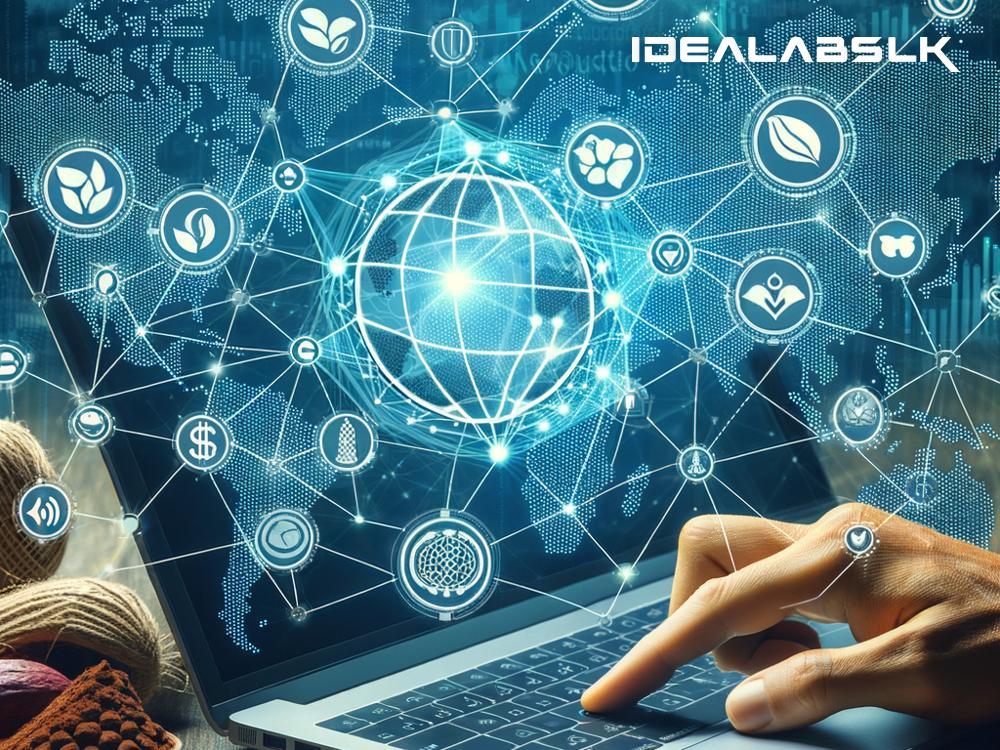Blockchain and Transparency in Fair Trade Foods: A Recipe for Trust
Fair trade is a movement that promises farmers and workers in developing countries better prices, decent working conditions, and fair terms of trade. But as conscientious consumers, how can we be sure that the premium we pay for fair trade-labeled products actually contributes to these noble goals? Enter blockchain technology, a digital innovation that is revolutionizing transparency in the fair trade food industry.
Understanding Blockchain
Imagine a ledger or a record book that is open for everyone to see, update, but not erase any entry. That's essentially what blockchain is. It's a digital ledger that records transactions across many computers so that the record cannot be altered retroactively without altering all subsequent blocks. This technology, best known for powering cryptocurrencies like Bitcoin, is now finding meaningful applications in tracking the journey of fair trade foods from farm to table.
How does Blockchain Enhance Transparency?
-
Traceability: Blockchain technology allows every product to have a unique, digital passport that follows it from its origin, through each step in the supply chain, right to your shopping cart. This level of traceability means you can see exactly where your food comes from, how it was produced, and how it got to you.
-
Verifiability: With blockchain, each transaction in the supply chain is recorded permanently and is easily verifiable by anyone. This means that claims made by fair trade brands can be independently checked and verified, enhancing trust and credibility.
-
Reduced Fraud: The immutable nature of blockchain records means that the information cannot be tampered with. This significantly reduces the risk of fraud, ensuring that the premium you pay for fair trade products is actually reaching the intended beneficiaries.
-
Efficiency and Reduced Costs: Traditional methods of certification and auditing are often time-consuming and costly. Blockchain can streamline these processes, reduce costs, and ensure that more of the premium paid for fair trade goes directly to improving the livelihoods of farmers and workers.
Real-World Examples of Blockchain in Fair Trade Foods
Several companies and organizations are already harnessing the power of blockchain to make the fair trade food industry more transparent. One notable example is bext360, a company that uses blockchain technology to track coffee beans from producer to consumer, ensuring fair compensation and sustainable practices. By scanning a simple QR code, consumers can view the entire journey of their coffee, including payments made to farmers.
Similarly, the FairChain Foundation has initiated a project to mint blockchain tokens equivalent to a living wage for coffee farmers. These tokens are directly related to the sale of their coffee, ensuring that farmers receive an equitable share of the profits.
The Future of Fair Trade Foods with Blockchain
The potential of blockchain to enhance the transparency and integrity of the fair trade food supply chain is enormous. However, it's not without its challenges. For widespread adoption, there needs to be significant investment in technology and education, especially in developing countries where most fair trade products originate.
Moreover, for blockchain to be truly effective, it requires participation from all stakeholders in the supply chain, from farmers to retailers. This means overcoming barriers such as digital literacy and access to technology. However, with increasing consumer demand for transparency and fair trade practices, there is a strong incentive for the industry to embrace blockchain technology.
Conclusion
Blockchain technology offers a compelling solution to the challenge of transparency in the fair trade food industry. By providing a secure and immutable record of the journey of fair trade foods, it enables consumers to make informed choices and supports the noble goals of the fair trade movement. As this technology evolves and becomes more accessible, it has the potential to transform the way we think about the ethics of our food, making the fair trade label even more meaningful. So the next time you enjoy your fair trade coffee or chocolate, consider the incredible technology that might have played a part in bringing it to you. It's a fascinating convergence of technology and ethics, all in your morning cup.

